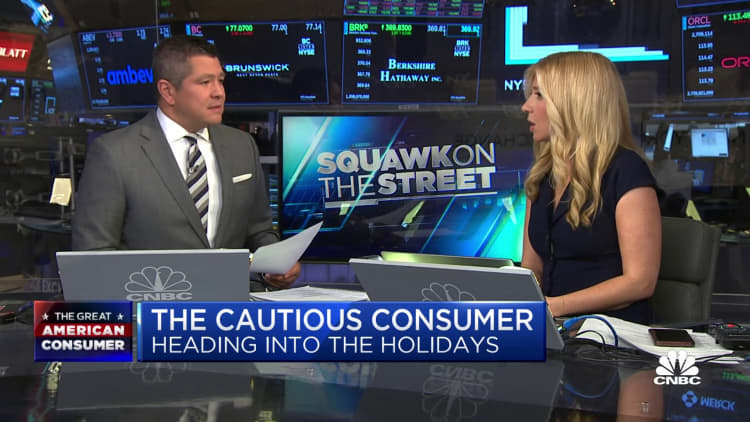
A recent survey by CNBC-Morning Consult reveals that American consumers have reduced their spending this year and plan to continue doing so throughout the holiday season.
The survey, conducted on behalf of CNBC by Morning Consult, polled 4,403 adults in the United States between Tuesday and Thursday. It found that a significant majority of adults (92%) have decreased their spending over the past six months.
Consumers remain cautious with their spending, carefully considering when and where to spend their hard-earned money. While inflation has slightly decreased, it remains at a high level. Additionally, broader economic uncertainties and labor disputes, such as the strike of auto workers in Detroit and writers and actors in Hollywood, have put consumer companies on alert.
The most common categories for spending cuts in the past six months included clothing and apparel (63%), restaurants and bars (62%), and entertainment outside the home (56%). This trend continues from the previous survey conducted in June. Other significant categories for spending reductions were groceries (54%), recreational travel and vacations (53%), and electronics (50%).
Shoppers along Chicago’s Magnificent Mile shopping district in Illinois, USA, on Tuesday, August 15, 2023.
Jamie Kelter Davis | Bloomberg | Getty Images
Looking ahead to the crucial holiday shopping season, retailers should take note: 76% of surveyed U.S. adults plan to reduce spending on non-essential items, and 62% expect to cut back on essential items “sometimes” or “more often” over the next six months.
The impact of the current economic situation varies among socio-economic groups. Surprisingly, it is not always the lower-income households that feel the most pinched. Of those earning $50,000 or less, 55% reported feeling the impact on their personal finances, while 61% of households with incomes between $50,000 and $100,000, and 46% of households earning at least $100,000 reported the same.
This sentiment improvement is significant for higher-income households compared to the previous survey. In June, over half of higher-income consumers (55%) reported a negative impact on their finances. Higher-income households are now starting to feel that the economic situation is having a positive effect, with 30% expressing this sentiment in September, up from 21% in June.











